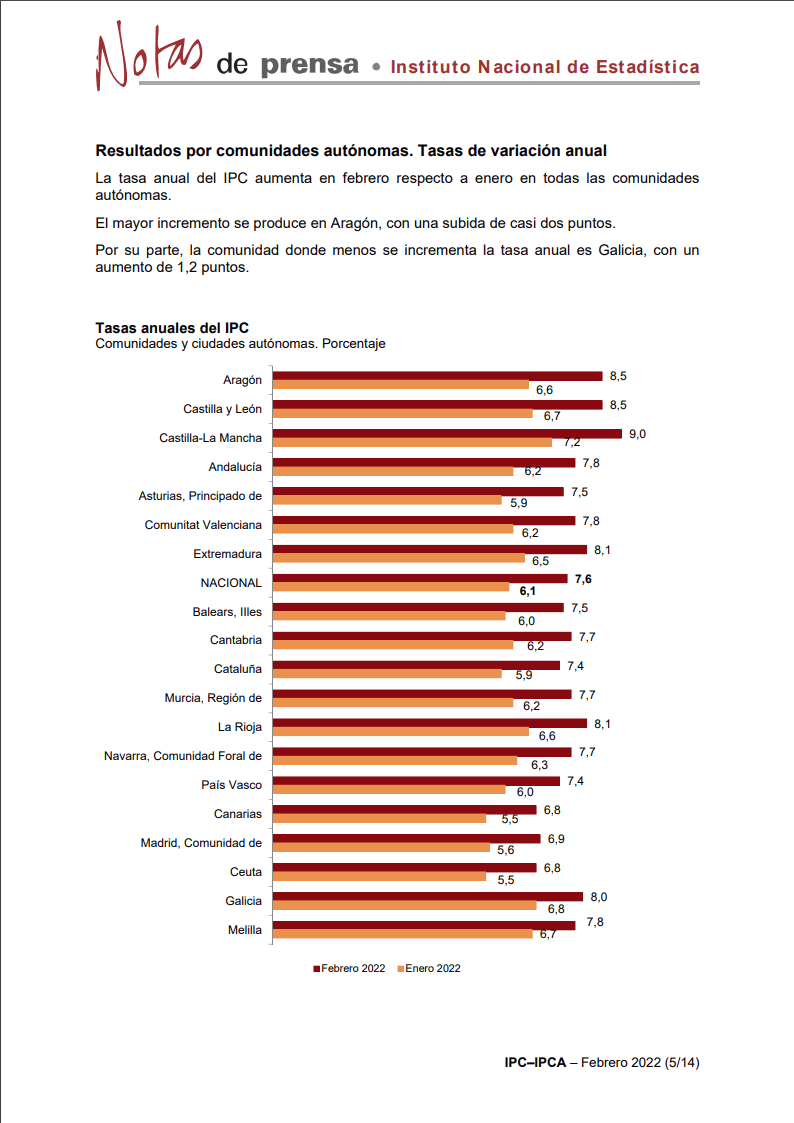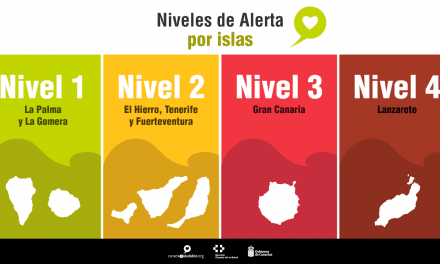The Consumer Price Index (CPI) in the Canary Islands increased by 6.8% over the month of February, in the year since February 2021, due to an increase in housing, transport and food prices, according to data published this Friday by Spain’s National Institute of Statistics (INE).

In one year housing has increased by 22.3% on the islands, while transport grew by 11.4%, and food and non-alcoholic beverages have increased by 6.1%. In contrast, only the inter-annual prices of clothing and footwear (-0.5%) and communications (-0.7%) fell in that time. The CPI has grown overall in the Archipelago by 0.7% since January due to increases in transport prices (+1.7%); in food and non-alcoholic beverages (+1.3%); and alcoholic beverages and tobacco (+1.1%), with only the prices of clothing and footwear falling (-2%).
Nationally, the CPI rose 0.8% in February and raised its inter-annual rate 1.5 points, to 7.6%, its highest in almost 36 years, since at least December 1986.
February’s inter-annual CPI rate (7.6%) is two tenths higher than at the end of last month (7.4%). More than three consecutive months at levels above 6%, a persistently high CPI not seen in three decades.
According to the INE, the year-on-year rise in the CPI to 7.6% has been due to electricity prices, which fell less than they did back in February 2021; added to this the increase in restaurant prices, and the higher cost of diesel for heating, fuel, automobiles and some foods, such as legumes and vegetables; milk, cheese and eggs, and bread and cereal, and there are plenty of reasons for concern in the months ahead.
Core inflation (excluding unprocessed food and energy products) increased six tenths in February, to 3%, which is more than 4.5 points below the rate of the general CPI. This represents the highest underlying rate since September 2008.
The CPI increased by 0.8% over the last month, in contrast to its having dropped 0.4% in January, due to the rise in the prices of fuels, fuels for heating, fruit and other food products, and catering.
In the last year, heating, lighting and water distribution have become 51.7% more expensive; oils and fats have raised their prices by 28.1% and personal transport is 13.3% more expensive due to the higher cost of fuel.













